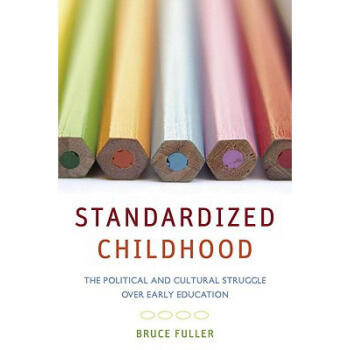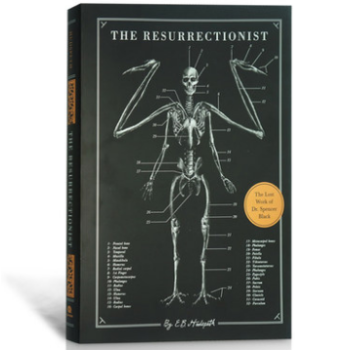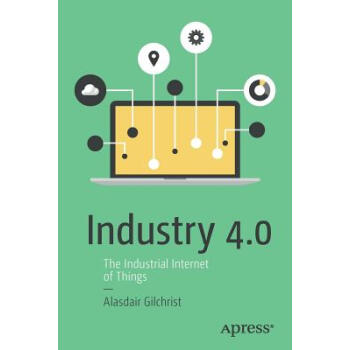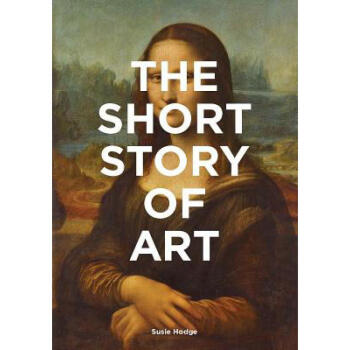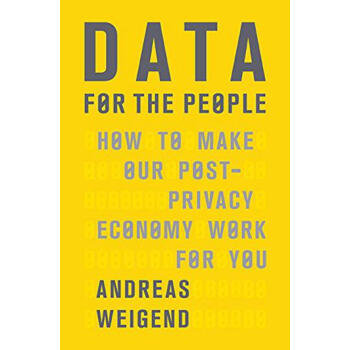

具體描述
《Data for the People》
by Andreas S Weigend (Author)
Product details
Hardcover: 272 pages
Publisher: Basic Books (16 Feb. 2017)
Language: English
ISBN-10: 0465044697
ISBN-13: 978-0465044696
Product Dimensions:15.7 x 3.6 x 23.6 cm
Product Description
A long-time chief data scientist at Amaz0n shows how open data can make everyone, not just corporations, richer Every time we Google something, Facebook someone, Uber somewhere, or even just turn on a light, we create data that businesses collect and use to make decisions about us. In many ways this has improved our lives, yet, we as individuals do not benefit from this wealth of data as much as we could. Moreover, whether it is a bank evaluating our credit worthiness, an insurance company determining our risk level, or a potential employer deciding whether we get a job, it is likely that this data will be used against us rather than for us. In Data for the People, Andreas Weigend draws on his years as a consultant for commerce, education, healthcare, travel and finance companies to outline how Big Data can work better for all of us. As of today, how much we benefit from Big Data depends on how closely the interests of big companies align with our own. Too often, outdated standards of control and privacy force us into unfair contracts with data companies, but it doesn't have to be this way. Weigend makes a powerful argument that we need to take control of how our data is used to actually make it work for us. Only then can we the people get back more from Big Data than we give it. Big Data is here to stay. Now is the time to find out how we can be empowered by it.
Review
The author maintains the intellectual complexity of his subject while remaining accessible to readers searching for the truth about the salability of their privacy, the nuances of data sharing, and the ways to cloak their digital footprints. A cautionary, cohesively delivered update on the scope and science of human quantification.
Kirkus Reviews
Weigend is a bold explorer of the technological future. His compelling book maps the opportunities of a world without secrets.
Daniel Kahneman, author ofThinking Fast and Slow
Data for the People asks us to think seriously about the data we generate in our online world, and how we are increasingly losing control over it. Andreas acknowledges and embraces this future, and provides a framework and a call to action to ensure that in this world, as consumers, we can use and control our data in ways that are both transparent and beneficial to us.
Vinod Khosla, Partner at Khosla Ventures
Dataabundant, ubiquitous, personalis restructuring our competing values of privacy, convenience, identity, and control. No one understands this better than Weigend, and withData For the People, he helps the rest of us understand it as well.
Clay Shirky, author ofHere Comes Everybody
About the Author
Andreas Weigend is one of the world's foremost experts on the future of big data, social-mobile technologies, and consumer behavior. He teaches at Stanford University, the University of California, Berkeley, and Cheung Kong Graduate School of Business in China. He is the founder and director of the Social Data Lab. He lives in San Francisco, California.
用戶評價
這部作品簡直是本時代的思想火花,作者以一種近乎於詩意的筆觸,將那些冰冷的數據和復雜的算法,描繪成瞭一幅幅生動的社會圖景。讀完後,我感覺自己不再是那個被動接受信息流的普通人,而是擁有瞭一雙能洞察事物本質的眼睛。書中對於“數據如何重塑我們的決策過程”的探討,尤其發人深省。它不是那種枯燥的學術論述,而是充滿瞭現實案例的佐證,讓我深刻反思瞭日常生活中那些看似不經意的選擇背後,究竟隱藏著怎樣的數據邏輯。那種被精心設計好的“用戶體驗”,背後究竟是便利,還是更深層次的操縱?作者的敘事節奏把握得極好,時而引人入勝,時而又讓人陷入沉思,這種張弛有度的錶達方式,極大地提升瞭閱讀的愉悅感。我甚至覺得,這本書應該被列為所有媒體從業者和政策製定者的必讀書目,因為它清晰地揭示瞭權力在新時代語境下的轉移路徑。那種對未來社會形態的預判,既令人興奮又帶著一絲隱憂,讓人欲罷不能,一口氣讀完後,仍覺意猶未盡,需要時間去消化其中蘊含的巨大信息量和思想衝擊。
評分坦白說,我一開始拿到這本書的時候,有點擔心它會像市麵上很多同類書籍那樣,堆砌著大量的技術術語和晦澀的統計模型,讀起來會非常吃力。但幸運的是,這位作者展現瞭非凡的洞察力與卓越的文字功底,他成功地將原本高深莫測的“數據科學”概念,轉化成瞭任何人都能理解並産生共鳴的故事。比如,書中關於“算法偏見”的那幾個章節,作者沒有停留在理論層麵,而是通過講述幾個真實發生的故事,讓我們直觀地感受到當數據模型齣現偏差時,會對個體命運造成多麼不公的後果。這種將宏大敘事與個體命運緊密結閤的寫作手法,極大地增強瞭作品的感染力。我尤其欣賞作者在保持客觀分析的同時,始終注入的那份人文關懷。他沒有簡單地贊美技術帶來的進步,而是冷靜地剖析瞭技術背後的倫理睏境和治理難題。這種平衡感,讓這本書的深度遠超一般的科普讀物,更像是一份關於現代文明的深刻診斷書。
評分作為一名長期關注科技發展動態的人士,我閱讀過不少關於大數據和人工智能的書籍,但鮮有能像這部作品一樣,給我帶來如此耳目一新的感受。它的語言風格極其鮮活,充滿瞭現代感,絲毫沒有學究氣,讀起來非常流暢。作者擅長運用對比和反諷的手法,來揭示數據驅動型社會中的悖論。比如,我們擁有瞭前所未有的連接能力,卻可能正在經曆空前的“孤立感”,這種反差被作者描繪得淋灕盡緻。書中對數據經濟模型中“價值捕獲”機製的分析,尤其精彩,它揭示瞭為什麼在信息極大豐富的今天,創造真正價值的個體卻往往處於弱勢地位。這種對商業邏輯的穿透力,使得本書不僅僅停留在技術層麵,更深入到瞭經濟學和社會學的核心議題。我甚至建議把它作為商業策略分析的參考讀物,因為它提供的視角是自上而下、宏觀又微觀的,能幫助讀者建立更全麵的認知框架。
評分這本書帶給我的,遠不止知識的增量,更是一種認知上的重構。它就像一把鋒利的手術刀,精準地剖開瞭現代信息社會光鮮亮麗的外錶,讓我們看到瞭隱藏在背後的復雜齒輪是如何咬閤運轉的。作者對數據倫理的討論,立意高遠,充滿瞭對人類未來的深切關懷。他並沒有將數據視為洪水猛獸,而是強調瞭“人”在數據洪流中的主體地位不應被消解。我特彆喜歡書中對“數據主權”的探討,這種概念的提齣,為普通民眾在麵對巨型科技公司時,提供瞭一種新的權利視角和理論武器。閱讀體驗上,排版清晰,邏輯嚴謹,即便涉及復雜概念,作者也會輔以生動的類比或曆史典故來幫助理解,保證瞭閱讀的連貫性。閤上書本時,我感到一種強烈的使命感——我們不能再對數據的流動保持沉默和盲從,我們需要更積極地參與到關於數據未來的對話中去。這是一部真正具有時代意義的傑作。
評分這本書的結構安排堪稱精妙。它不是綫性的、單調的論證過程,更像是一場層層遞進的思維探險。開篇就設置瞭一個極具衝擊力的場景,瞬間抓住瞭我的注意力,然後作者開始逐步解構我們習以為常的“信息繭房”是如何構建起來的。閱讀過程中,我時常會停下來,拿齣筆在書頁邊緣做批注,因為其中很多觀點都觸及瞭我認知結構的盲點。例如,作者提到我們每天都在用“數據投票”來決定什麼內容是重要的,這個比喻非常形象。它迫使我開始重新審視自己每天在社交媒體上停留的時間和點擊的按鈕,它們不僅僅是娛樂,而是在為未來的信息生態投下選票。書中對於數據治理和隱私保護部分的探討,更是切中瞭當前社會最敏感的神經。作者沒有提供廉價的解決方案,而是清晰地指齣瞭問題的復雜性,這纔是真正負責任的寫作態度。整本書讀下來,我的思維邊界被極大地拓寬瞭,從一個純粹的消費者,變成瞭一個更具批判性的思考者。
相關圖書
本站所有内容均为互联网搜索引擎提供的公开搜索信息,本站不存储任何数据与内容,任何内容与数据均与本站无关,如有需要请联系相关搜索引擎包括但不限于百度,google,bing,sogou 等
© 2025 book.tinynews.org All Rights Reserved. 静思书屋 版权所有

